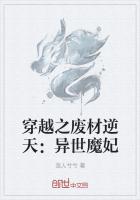The dinginess of her present life threw into enchanting relief the existence to which she felt herself entitled. To a less illuminated intelligence Mrs. Bart's counsels might have been dangerous; but Lily understood that beauty is only the raw material of conquest, and that to convert it into success other arts are required. She knew that to betray any sense of superiority was a subtler form of the stupidity her mother denounced, and it did not take her long to learn that a beauty needs more tact than the possessor of an average set of features.
Her ambitions were not as crude as Mrs. Bart's. It had been among that lady's grievances that her husband--in the early days, before he was too tired--had wasted his evenings in what she vaguely described as "reading poetry"; and among the effects packed off to auction after his death were a score or two of dingy volumes which had struggled for existence among the boots and medicine bottles of his dressing-room shelves. There was in Lily a vein of sentiment, perhaps transmitted from this source, which gave an idealizing touch to her most prosaic purposes. She liked to think of her beauty as a power for good, as giving her the opportunity to attain a position where she should make her influence felt in the vague diffusion of refinement and good taste. She was fond of pictures and flowers, and of sentimental fiction, and she could not help thinking that the possession of such tastes ennobled her desire for worldly advantages. She would not indeed have cared to marry a man who was merely rich: she was secretly ashamed of her mother's crude passion for money.
Lily's preference would have been for an English nobleman with political ambitions and vast estates; or, for second choice, an Italian prince with a castle in the Apennines and an hereditary office in the Vatican. Lost causes had a romantic charm for her, and she liked to picture herself as standing aloof from the vulgar press of the Quirinal, and sacrificing her pleasure to the claims of an immemorial tradition. . . .
How long ago and how far off it all seemed! Those ambitions were hardly more futile and childish than the earlier ones which had centred about the possession of a French jointed doll with real hair. Was it only ten years since she had wavered in imagination between the English earl and the Italian prince? Relentlessly her mind travelled on over the dreary interval. . . .
After two years of hungry roaming Mrs. Bart had died---died of a deep disgust. She had hated dinginess, and it was her fate to be dingy. Her visions of a brilliant marriage for Lily had faded after the first year.
"People can't marry you if they don't see you--and how can they see you in these holes where we're stuck?" That was the burden of her lament; and her last adjuration to her daughter was to escape from dinginess if she could.
"Don't let it creep up on you and drag you down. Fight your way out of it somehow--you're young and can do it," she insisted.
She had died during one of their brief visits to New York, and there Lily at once became the centre of a family council composed of the wealthy relatives whom she had been taught to despise for living like pigs. It may be that they had an inkling of the sentiments in which she had been brought up, for none of them manifested a very lively desire for her company; indeed, the question threatened to remain unsolved till Mrs. Peniston with a sigh announced: "I'll try her for a year."Every one was surprised, but one and all concealed their surprise, lest Mrs. Peniston should be alarmed by it into reconsidering her decision.
Mrs. Peniston was Mr. Bart's widowed sister, and if she was by no means the richest of the family group, its other members nevertheless abounded in reasons why she was clearly destined by Providence to assume the charge of Lily. In the first place she was alone, and it would be charming for her to have a young companion. Then she sometimes travelled, and Lily's familiarity with foreign customs--deplored as a misfortune by her more conservative relatives--would at least enable her to act as a kind of courier. But as a matter of fact Mrs. Peniston had not been affected by these considerations. She had taken the girl simply because no one else would have her, and because she had the kind of moral MAUVAISE HONTE which makes the public display of selfishness difficult, though it does not interfere with its private indulgence. It would have been impossible for Mrs.
Peniston to be heroic on a desert island, but with the eyes of her little world upon her she took a certain pleasure in her act.
She reaped the reward to which disinterestedness is entitled, and found an agreeable companion in her niece. She had expected to find Lily headstrong, critical and "foreign"--for even Mrs.
Peniston, though she occasionally went abroad, had the family dread of foreignness--but the girl showed a pliancy, which, to a more penetrating mind than her aunt's, might have been less reassuring than the open selfishness of youth. Misfortune had made Lily supple instead of hardening her, and a pliable substance is less easy to break than a stiff one.
Mrs. Peniston, however, did not suffer from her niece's adaptability. Lily had no intention of taking advantage of her aunt's good nature. She was in truth grateful for the refuge offered her: Mrs. Peniston's opulent interior was at least not externally dingy. But dinginess is a quality which assumes all manner of disguises; and Lily soon found that it was as latent in the expensive routine of her aunt's life as in the makeshift existence of a continental pension.
Mrs. Peniston was one of the episodical persons who form the padding of life. It was impossible to believe that she had herself ever been a focus of activities. The most vivid thing about her was the fact that her grandmother had been a Van Alstyne. This connection with the well-fed and industrious stock of early New York revealed itself in the glacial neatness of Mrs.















